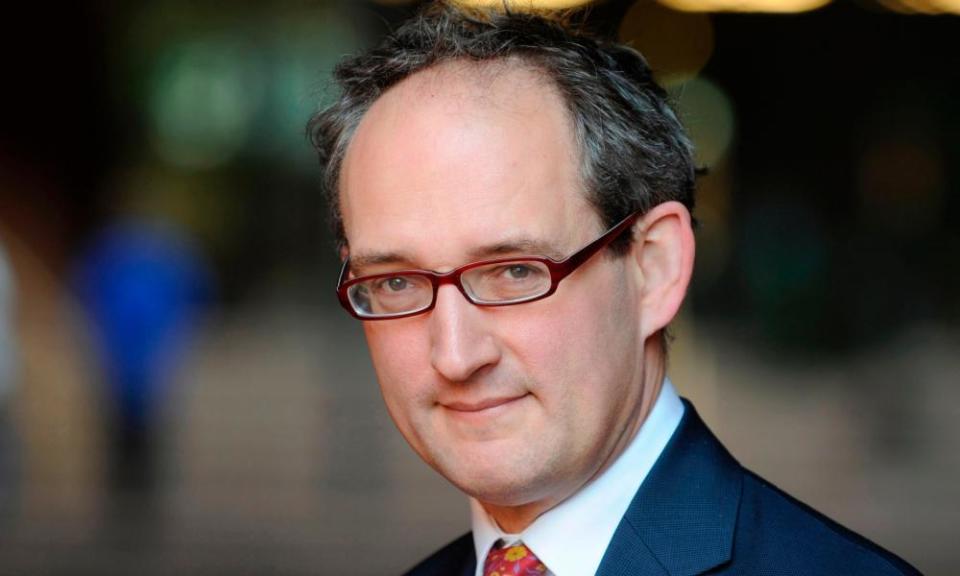Kensington and Chelsea chief 'had to go', say Labour and campaigners

The forced resignation of Kensington and Chelsea council’s chief executive over the Grenfell Tower fire has been welcomed, but campaigners and Labour said more heads should roll over the disaster.
The government has not denied that Nicholas Holgate was forced to quit his post by the communities secretary, Sajid Javid, over the council’s widely criticised response to the fire. But his resignation has not stopped calls for the departure of the Conservative leader of the council, Nicholas Paget-Brown.
The Labour MP David Lammy, whose friend Khadija Saye was killed in the fire, said Holgate’s resignation was not enough to demonstrate the authorities had got a grip of the crisis.
Speaking to ITV’s Good Morning Britain, he said: “This is a circumstance in which many people should consider their position and step aside. The leader of the council should go. The political leadership has been poor and he should go. He has lost the faith of the people on the street.”
When it was pointed out that Kensington and Chelsea councillors had given Paget-Brown a vote of confidence, Lammy said: “I think they are out of touch with the community they are meant to represent.”
Local and national Labour politicians also called for Paget-Brown to go.
When is the leader and head of the TMO going. https://t.co/QsVDhizpGm
— Pamela Fitzpatrick (@CllrFitzpatrick) June 22, 2017
But the Leader of the council must surely resign too ? BBC News - London fire: Kensington council chief quits https://t.co/b2AIkr5Mbn
— Diana Johnson (@DianaJohnsonMP) June 21, 2017
Holgate said in a statement he would have been a “distraction” if he had stayed in his post after the tragedy, which left at least 79 feared dead.
He said: “Serving the families so desperately affected by the heart-breaking tragedy at Grenfell Tower remains the highest priority of the council.”
A “huge amount” needed to be done for the victims “in very challenging circumstances”, he added.
Asked if Javid had forced Holgate to resign, the Department for Communities and Local Government gave a brief statement which did not deny such an intervention. “The appointment of chief executives is entirely the responsibility of the local authority,” it said.
Paget-Brown said he accepted Holgate’s resignation “with great regret” and “the council will now need to work in a new way with different partners to take this forward”.
The Justice4Grenfell campaign group said central government should be more involved with the council. Spokeswoman Yvette Williams told the Press Association: “He wasn’t left with any alternative. I think it was the right thing for him to do, the community had been completely abandoned by the local authority.
“We thought after the first 24 hours they would just go anyway, we have been abandoned, we are almost living in the People’s Republic of Ladbroke Grove.
“This represents the structure dominating society: Nick Paget-Brown comes from a political structure; the other Nick is an officer in the hierarchy. Somebody’s got to take the drop and it is usually the lower-down person.”
Asked if she would like to see Paget-Brown forced to resign, she agreed, adding: “It has to come from central government, everything has to come from state level.”
Survivors and the families of those killed the fire have directed considerable anger at the official response to the blaze, with residents claiming they have received little assistance from authorities.
Theresa May apologised for the failures by local and national government in reacting to the tragedy and addressed the Commons on Thursday.
The shadow housing secretary, John Healey, echoed these concerns and accused the council of going “awol”.
He told BBC Breakfast: “[Holgate is] right to go, he had to go. His council went awol in the days after this terrible fire at a time when the victims, survivors, those families still looking for their family members who were missing needed help on the ground and, above all, someone to reassure them and coordinate the relief and help efforts.
“The council were nowhere to be seen when I was down there the day after the fire – he had no option and he was right to go. Who knows what went on behind the scenes? The most important thing is he has resigned, he has gone, and he had no option after the prime minister said in the House of Commons – quite rightly – that this was a failure of the state, national and local, to help people when they needed that help most.”
The chancellor, Philip Hammond, said he was “not privy” to any conversations between Holgate and Javid, but told the BBC: “Where we have seen during this terrible tragedy at Grenfell Tower that we are less well organised is around the second line of response – how we support the victims, how we deal with people who are, for example, made homeless by a disaster like this.”

 Yahoo News
Yahoo News 